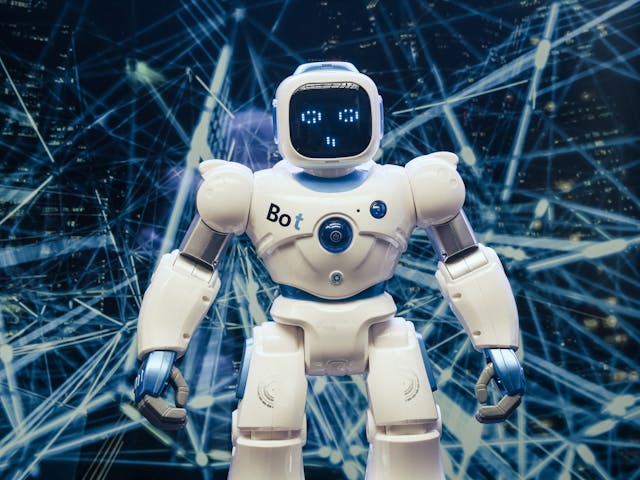In the vast landscape of technological progress, few phenomena have wielded as profound an impact as the ascent of Artificial Intelligence (AI). Its sweeping influence extends far beyond mere optimization of daily tasks;
AI stands as the catalyst for a wholesale transformation within entire industries, fundamentally altering the prism through which we view and engage with technology. Nestled at the core of this epochal shift resides a pivotal facet of AI: deep learning. This formidable methodology stands as an indomitable force propelling innovation across a multitude of domains, shaping the very fabric of our technological evolution.
Exploring the vast realm of Artificial Intelligence (AI) is an exhilarating journey into the future of technology. Understanding AI’s significance unveils a world where machines learn, adapt, and make decisions, mirroring human-like intelligence.
Its importance lies not just in its ability to automate tasks, but in revolutionizing industries, solving complex problems, and enhancing decision-making processes. AI stands as a beacon of innovation, offering unprecedented opportunities to augment human potential, foster efficiency, and drive progress across diverse fields, fundamentally reshaping the way we live and interact with technology.
Unveiling the Essence of Artificial Intelligence
Artificial Intelligence (AI) stands as a testament to humanity’s relentless pursuit of innovation and intelligence replication. It’s not merely a technological leap; it embodies the essence of human curiosity, ambition, and ingenuity.
At its core, AI represents the emulation of cognitive processes typically associated with human minds. It’s the fusion of algorithms, data, and computational power aimed at enabling machines to perform tasks that traditionally demanded human intelligence. This amalgamation of science, data, and learning isn’t just about creating smart machines; it’s about redefining our relationship with technology and propelling us into an era where human potential merges harmoniously with machine capabilities.
Artificial Intelligence, in its essence, refers to the development of intelligent systems that can simulate human-like cognitive processes. It encompasses a spectrum of techniques and methodologies that enable machines to perform tasks typically requiring human intelligence, such as problem-solving, learning, perception, and decision-making.
The Rise of Deep Learning
Within the expansive landscape of AI, deep learning stands out as a breakthrough methodology that has unlocked remarkable capabilities. At its core, deep learning mirrors the structure and function of the human brain by using artificial neural networks to process and analyze data.
These neural networks, composed of interconnected layers of algorithms (neurons), learn to recognize patterns and extract intricate features from vast amounts of data. Unlike traditional machine learning approaches that rely heavily on handcrafted features, deep learning models autonomously identify relevant patterns, making them highly adaptable and efficient in handling complex tasks.
Applications Reshaping Industries
The application domains of deep learning are as diverse as they are impactful. In healthcare, AI-powered diagnostic tools leverage deep learning algorithms to analyze medical images, aiding in the early detection of diseases like cancer with unprecedented accuracy. Similarly, in finance, these algorithms assist in fraud detection by identifying anomalous patterns within financial transactions.
The realms of natural language processing (NLP) and speech recognition have witnessed monumental advancements, with virtual assistants and language translation tools harnessing deep learning to understand and generate human language. This has not only transformed communication but also paved the way for more inclusive technology accessible to diverse linguistic communities.
Challenges and Ethical Considerations
The burgeoning landscape of Artificial Intelligence (AI) is not devoid of challenges and ethical considerations, marking a critical crossroads in its evolution. One of the foremost challenges lies in the inherent biases embedded within AI systems, often reflective of the data they’re trained on.
While the potential of deep learning is vast, it is not without challenges. The hunger for data, computational power, and the “black-box” nature of some deep learning models raise concerns about privacy, data biases, and interpretability. Ethical considerations surrounding AI’s societal impacts and the responsible deployment of these technologies remain paramount.
Ensuring ethical AI development necessitates a multidisciplinary approach, encompassing not only technological expertise but also ethical guidelines, regulatory frameworks, and diverse perspectives. It’s imperative to prioritize fairness, transparency, and accountability in AI systems, fostering inclusivity, mitigating biases, and empowering humans to wield AI as a force for positive societal transformation.
This era demands a conscious and concerted effort to navigate the complex terrain of AI, ensuring that innovation is harmonized with ethical responsibility, ultimately shaping a future where AI augments human potential while upholding ethical principles.
The Future Horizon
Looking ahead, the evolution of deep learning continues to push boundaries. Researchers are exploring more efficient architectures, such as transformers and graph neural networks, to enhance performance while addressing computational demands. Federated learning and transfer learning are also emerging techniques aiming to mitigate data privacy issues and improve model generalization.
Artificial Intelligence, powered by the ingenuity of deep learning, has transcended theoretical frameworks to become an integral part of our daily lives. Its evolution not only shapes industries but also raises thought-provoking questions about ethics, privacy, and the future of human-machine collaboration.
As we navigate this era of unprecedented technological growth, the responsible development and ethical implementation of AI and deep learning stand as imperative pillars, guiding us toward a future where innovation harmonizes with societal well-being.
In essence, the journey into the depths of AI, particularly through deep learning, continues to be a riveting expedition, one that holds the promise of reshaping our world for the better.


